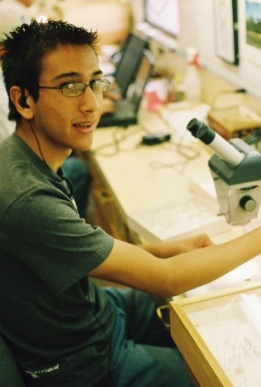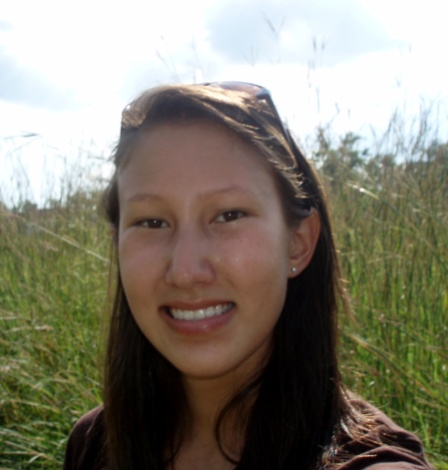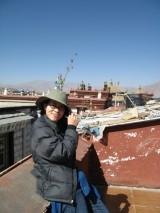SEEDS alumni receive NSF Graduate Research Fellowship
The SEEDS program (Strategies for Ecology Education, Diversity, and Sustainability) is an education initiative of ESA. Since its founding in 1996, the SEEDS mission has been to diversify and advance ecology as a profession through opportunities that stimulate and nurture the interest of underrepresented students. Focused at the undergraduate level, the program sponsors student field trips, research fellowships, semi-annual leadership workshops and travel awards to attend the ESA Annual Meeting.
This year, three SEEDS students were awarded the competitive NSF Graduate Research Fellowship, which supports graduate students in PhD programs for three years. Their stories are memorable and inspiring tales of SEEDS’s success.
 Israel Del Toro will attend the University of Massachusetts Amherst’s program in Organismic and Evolutionary Biology. His graduate research with Aaron Ellison will investigate how terrestrial invertebrate communities are likely to be affected by regional climate change in New England. Del Toro first heard about the NSF fellowship at last year’s ESA Meeting in Milwaukee, from his SEEDS mentor, Amy Freestone of the Smithsonian. Says Del Toro:
Israel Del Toro will attend the University of Massachusetts Amherst’s program in Organismic and Evolutionary Biology. His graduate research with Aaron Ellison will investigate how terrestrial invertebrate communities are likely to be affected by regional climate change in New England. Del Toro first heard about the NSF fellowship at last year’s ESA Meeting in Milwaukee, from his SEEDS mentor, Amy Freestone of the Smithsonian. Says Del Toro:
“When I first received the notification of the NSF Fellowship, I literally shouted out loud and ran a victory lap around the lab. SEEDS has truly been a supportive network that I can count and has magnified the excitement I have about the field of ecology. Any success that I have had to this point is partially attributed to the spectacular SEEDS chapters, members and coordinators.”
Kimberly Komatsu is currently in the Yale program in Ecology and  Evolution, where her research involves top-down and bottom-up controls of grassland communities and the processes that interact to determine productivity and community composition. As she puts it, she was “shocked and amazed” to discover she had been awarded the NSF Graduate Fellowship.
Evolution, where her research involves top-down and bottom-up controls of grassland communities and the processes that interact to determine productivity and community composition. As she puts it, she was “shocked and amazed” to discover she had been awarded the NSF Graduate Fellowship.
Komatsu says that meeting Scott Collins on her first SEEDS field trip to the Sevilleta Long-Term Ecological Research (LTER) site in 2005 that she landed where she is today. Reflecting on recently traveling across South Africa with Collins, she remarked that “it’s funny it is how one four-day field trip can really change your whole life.”
 Christina Wong graduated is pursuing a PhD at the School of Sustainability at Arizona State University, working with Nancy Grimm. She hopes to study urban water provisioning systems by evaluating the tradeoffs between the benefits to cities and the costs of foregone ecosystem services.
Christina Wong graduated is pursuing a PhD at the School of Sustainability at Arizona State University, working with Nancy Grimm. She hopes to study urban water provisioning systems by evaluating the tradeoffs between the benefits to cities and the costs of foregone ecosystem services.
For Wong, her career literally sprouted from SEEDS. As she puts it:
“None of this would have been remotely feasible if it weren’t for SEEDS. SEEDS introduced me to ecology and the array of opportunities within the field. SEEDS allowed me to envision a future where I could aspire to be a scientist. SEEDS showed me that my commitment to public service was not counterintuitive to intellectual rigor. In fact, if it were not for SEEDS I would not have met my current adviser, my SEEDS fellowship mentor, and be a PhD student at ASU.”
To learn more about the SEEDS program, visit the SEEDS web site. Click here to make a donation to the program.
This post submitted by Melissa Armstrong, Diversity Programs Manager at ESA.